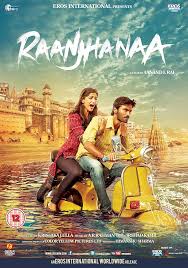Exploring Raanjhanaa: A Cinematic Masterpiece

Introduction
Raanjhanaa, directed by Aanand L. Rai and released in 2013, has secured its place as a landmark film in Indian cinema. With a captivating story, memorable music, and powerful performances, it highlights themes of love, social justice, and the nuances of relationships in modern India. The film’s relevance continues to resonate with audiences, making it a topic of discussion years after its release.
Plot Overview
The film tells the story of Kundan (played by Dhanush), a vibrant and passionate young man from Varanasi who falls in love with Zoya (played by Sonam Kapoor), a girl from a politically influential family. Despite the differences in their backgrounds, Kundan’s relentless pursuit of Zoya drives the narrative as it weaves through various socio-political landscapes. The machinations of love are complicated further by Zoya’s affection for another man, leading to a tale that explores the limits of love, commitment, and the impact of societal expectations.
Cultural Significance
Raanjhanaa transcends typical romantic dramas by addressing deeper social issues, such as caste, politics, and the essence of love that challenges societal norms. The film’s backdrop in Varanasi provides not just a picturesque setting but also brings to light the religious and cultural diversity of India. The soundtrack, composed by A.R. Rahman, features songs that have become anthems of love and loss, further embedding the film in popular culture.
Reception and Legacy
Upon its release, Raanjhanaa received critical acclaim for its screenplay and performances, especially highlighting Dhanush’s debut in Bollywood. The film’s exploration of love intertwined with politics appealed widely to audiences, leading to a strong box office performance. Over the years, it has accumulated a dedicated fan base and is often referenced in discussions of iconic films in Indian cinema.
Conclusion
Raanjhanaa remains relevant due to its unique blend of romance and social commentary. As it faces the test of time, its exploration of love and identity provides valuable insights into contemporary society. With a potential for re-exploration through remakes or adaptations, Raanjhanaa exemplifies how cinema can reflect and shape cultural narratives. For audiences, the film serves as not just entertainment but a poignant commentary on the complexities of love in a changing world.









